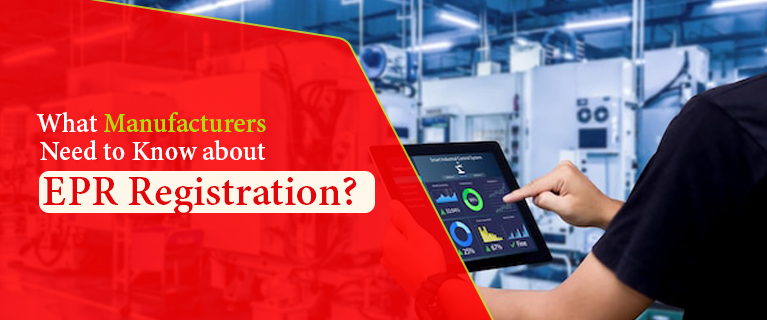How To Avail The Services Of An EPR Consultant?
EPR Registration, or Extended Producer Responsibility Registration, is a regulatory requirement imposed by many countries to ensure that producers of certain goods or products take responsibility for the entire lifecycle of their products, including their eventual disposal and recycling. The goal of EPR is to promote environmental sustainability by shifting the burden of managing and disposing of post-consumer waste from local governments and municipalities to the producers themselves.
When a company or producer is required to undergo EPR registration, it means they need to formally declare their commitment to fulfilling their extended responsibilities for managing the waste generated from their products. This often involves setting up mechanisms for collecting, recycling, or safely disposing of the products once they have reached the end of their useful life.
Availing the services of an Extended Producer Responsibility (EPR) consultant in India involves a systematic approach to ensure you choose a qualified professional who can guide you through the complexities of EPR compliance and implementation. Here's a step-by-step guide to help you find and engage an EPR consultant:
1. Identify Your Needs: Determine your specific EPR certification requirements and objectives. Understand which products or materials your business is responsible for, the regulatory framework you need to comply with, and any sustainability goals you aim to achieve.
2. Research and Shortlist: Conduct thorough research to identify EPR consultants in India. Look for consultants or consulting firms with expertise in environmental compliance, waste management, and EPR regulations. Consider factors such as their experience, track record, industry knowledge, and client reviews.
3. Check Qualifications and Expertise: Verify the qualifications and expertise of potential EPR consultants. They should have a strong understanding of relevant environmental laws, waste management practices, recycling processes, and government regulations related to EPR.
4. Assess Experience and References: Inquire about the consultant's experience in handling EPR projects for businesses similar to yours. Ask for references or case studies that demonstrate their successful implementation of EPR programs.
5. Request Proposals and Quotes: Contact shortlisted consultants and request detailed proposals outlining their approach, methodologies, scope of work, timelines, deliverables, and associated costs. This will help you compare different consultants and make an informed decision.
6. Evaluate Compatibility: During discussions with potential consultants, assess their communication skills, responsiveness, and willingness to understand your business needs. A good consultant should be a collaborative partner who can tailor their services to your requirements.
7. Discuss Contract and Terms: Once you've selected a consultant, discuss and finalise the terms of the engagement. This includes the scope of work, payment terms, confidentiality agreements, and any other relevant contractual aspects.
8. Collaborative Planning: Work closely with the chosen consultant to develop a detailed EPR compliance and implementation plan. This should include tasks, milestones, responsibilities, and a timeline for achieving your EPR goals.
9. Execution and Monitoring: Execute the EPR plan with the guidance of the consultant. Regularly monitor progress, address any challenges that arise, and ensure compliance with applicable regulations.
10. Knowledge Transfer: As the project progresses, ensure that the consultant transfers knowledge and expertise to your team. This empowers your organisation to sustain EPR efforts independently in the long run.
Remember that the success of your EPR initiative depends on a strong partnership with a knowledgeable and reliable EPR consultant. Taking the time to select the right consultant can lead to effective EPR compliance, enhanced sustainability, and positive environmental impact for your business.




Comments
Post a Comment